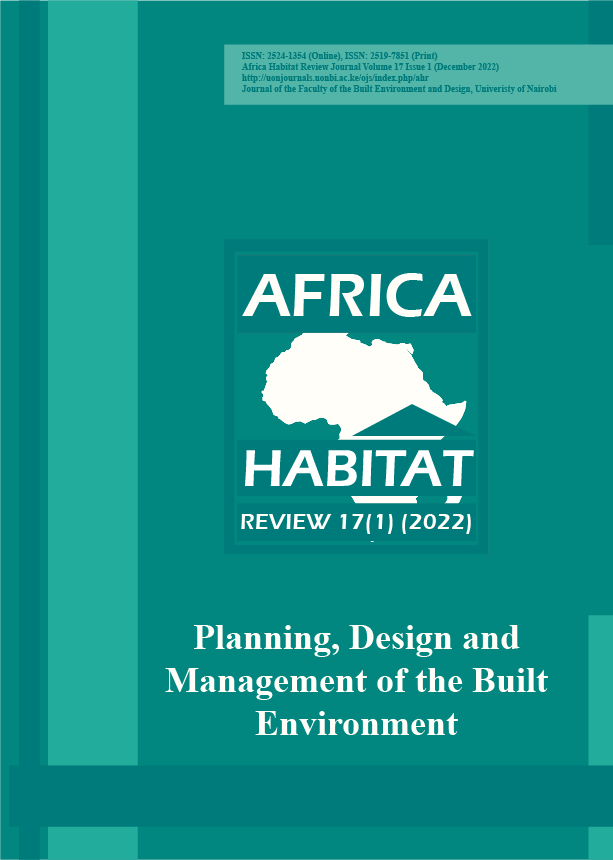Locational Effects of Petrol Filling Stations on Environmental Safety and Health in African Cities:
A case of Lagos, Nigeria
Abstract
Past studies predominantly focused on profit maximization, efficiency and standards compliance in the locational analysis of petrol filling stations. The study, therefore, examined the locational effects of petrol filling stations on the environmental safety and health. Specifically, the study examined the distances of the petrol filling stations from the residential buildings, safety and health conditions of the environment in assessing the effects. A survey approach combined with the use of Global Positioning System (GPS) and Geographic Information System (GIS) was adopted where 384 residents were selected from the estimated 1,002 buildings located 100m from the petrol filling stations to collect data using multi-stage sampling technique. Data collected were analysed using frequency, percentages, mean and correlation analysis. Findings showed that the petrol filling stations location did not comply with planning standard, mostly located between 0 – 25m from residential buildings; with oil leakages as the perceived hazard and respiratory diseases being mostly prevalent. Also, the findings showed that there was a strong, negative correlation between distance of petrol filling station and oil leakages (r = -.523, n = 384, p < .001), general ailment (r = -.562, n = 384, p < .001), skin diseases (r = -.548, n = 384, p < .001), respiratory diseases (r = -.652, n = 384, p < .001) and sight problems (r = -.511, n = 384, p < .001); with increase in the perceived oil leakages and diseases associated with decrease in distances of the stations from residential buildings. The conclusion is that risks and diseases perceptions increase with the location of the petrol filling stations near to the residential buildings. The study recommends strict compliance to the planning standards by the filling stations operators and activation of their social corporate responsibilities in the safety and health services to the cities as well as compensation for the affected persons.


